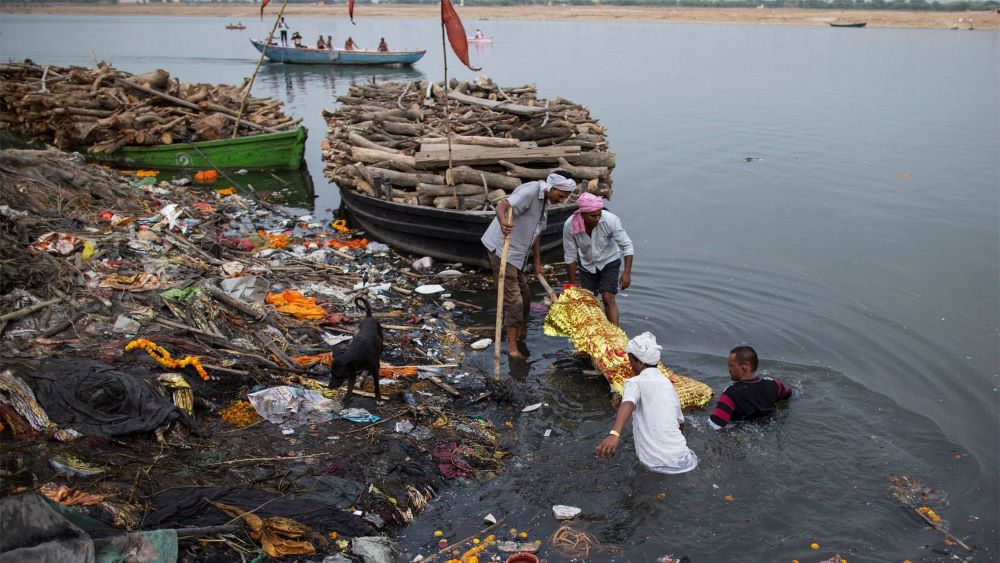11 Dec 2024

Tired Earth
By The Editorial Board

Concerns have long been held about certain adverse human and environmental rights impacts of the international investment arbitration system, or investor-state dispute settlement (ISDS), under which foreign investors seek compensation for state violations of international investment agreements. Human rights experts are particularly concerned about the asymmetric nature of the system and a lack of investors’ human rights obligations. Together with high ISDS costs and arbitral awards, they undermine states’ ability to realise economic, social, cultural and environmental rights.
Criticism has not gone unheard and a broad reform process is underway through both the arbitration tribunal systems and ‘new generation’ investment agreements.
The Asia Pacific region has been a hub of this activity in recent years. Multiple regional and plurilateral agreements have come into being such as the Comprehensive and Progressive Agreement for Trans-Pacific Partnership (CPTPP) and the Regional Comprehensive Economic Partnership. Alongside this flurry of activity has been a dramatic fall in the number of bilateral investment treaties (BITs) in the region, with dozens having been unilaterally terminated.
What we are witnessing is a generational ‘baton change’ in international investment law, taking place in most regions globally. Many of the BITs, negotiated during the 1990s and 2000s, are expiring. But an even stronger driver of change is dissatisfaction with the BITs — their narrow purpose, the terms of their investor protections, the expansive interpretations of those protections by many arbitral tribunals and the enormous compensation frequently awarded.
There is no doubt that the narrow purpose of BITs isolates foreign investment from its wider regulatory context. New generation agreements like the CPTPP also give protections to foreign investors but they do so in a regulatory context that increasingly includes environmental and labour standards and sustainable development. They also have a more direct connection with international efforts in these areas, such as the investment agreements work of the UN Working Group on Business and Human Rights.
But the more specific dissatisfaction relates to investor protections in BITs, including against ‘indirect expropriation’ and protecting investors’ entitlement to ‘fair and equitable treatment’. Many of the reported disputes over these investor protections in BITs have also involved the protection of human and environmental rights. In Tecmed v Mexico, revocation of a hazardous waste landfill permit, in response to public concerns about human health and environmental protection, was held to constitute indirect expropriation. In Suez and Interagua v Argentina, a measure which safeguarded the human right to water was held to fail the standard of fair and equitable treatment. In Abengoa v Mexico, non-renewal of an operating license, in light of public concerns about local indigenous rights and health, was held to constitute indirect expropriation.
Disputes of this kind illustrate why human rights experts express concern that investment law as applied by arbitral tribunals can restrict host state policy space and create limits on states’ ability to realise economic, social, cultural and environmental rights. What steps might be taken to protect this policy space? A few states in the Asia Pacific region, including Indonesia and India, have begun terminating some of their BITs unilaterally. But ‘survival clauses’ may give investors ongoing rights to protection for lengthy periods after termination.
A small number are negotiating new generation bilateral agreements, adding specific provisions clarifying the states’ joint interpretation of investor protections. For example, Vietnam’s 2020 Investment Protection Agreement with the European Union sets out, for clarity, those state actions which will amount to denial of fair and equitable treatment (Article 2.2.5).
Importantly, more states are engaged in negotiating new generation regional agreements with interpretative provisions. Annex 9-B of the CPTPP, for example, clarifies that ‘non-discriminatory regulatory actions by a Party that are designed and applied to protect legitimate public welfare objectives, such as public health, safety and the environment, do not constitute indirect expropriations, except in rare circumstances’.
One unknown about this strategy is whether mere clarifications will be sufficient to overturn years of competing legal approaches by tribunals, many acknowledging a state’s sovereign right to regulate in a non-discriminatory manner for a public purpose but presenting it as subordinate to BIT obligations or subject to proportionality testing as to a measure’s ‘effect’ on an investment.
States could also import domestic legal obligations expressly into their new generation investment agreements. The Morocco–Nigeria BIT obliges investors to ensure that their investments operate in a manner consistent with the environmental, labour and human rights obligations binding on the home and the host states (Article 18). This approach aligns with the 2020 draft of the Legally Binding Treaty being developed by the UN Working Group on Business and Human Rights.
Two things are critical if any real reform is to take place. It is imperative that the reform process is broadly — not narrowly — conceived. In the words of one investment lawyer, the investment treaty regime must be examined ‘not in isolation but as it intersects with, and affects, wider governance arrangements’.
Transparency must also be addressed. It will be hard to achieve any real reform while states cling to long-entrenched practices of confidentiality, which they are still permitted to do under the recent UNCITRAL Transparency Rules and Mauritius Convention. The rules governing Beijing’s recently established Investment Dispute Settlement Centre, which will hear disputes arising from the 136 countries in China’s Belt and Road Initiative, provided an opportunity for a new generation investment arbitration system. Disappointingly, while the rules establish public hearings and awards as the default position, the disputing parties are fully entitled to agree otherwise. Much still needs to change.
Source : eastasiaforum.org
Comment